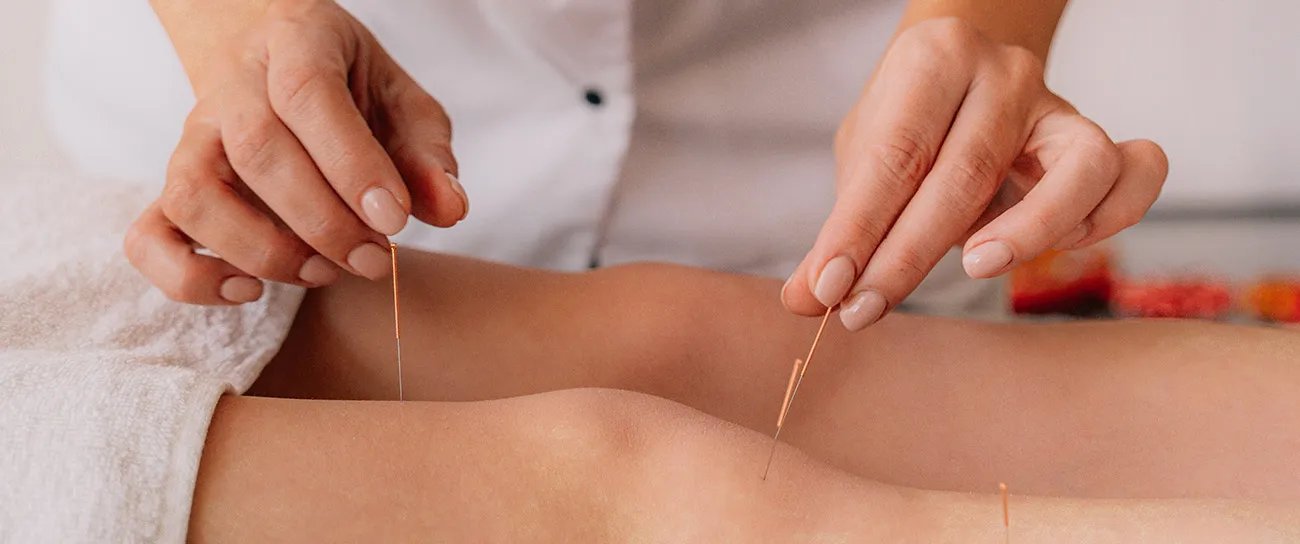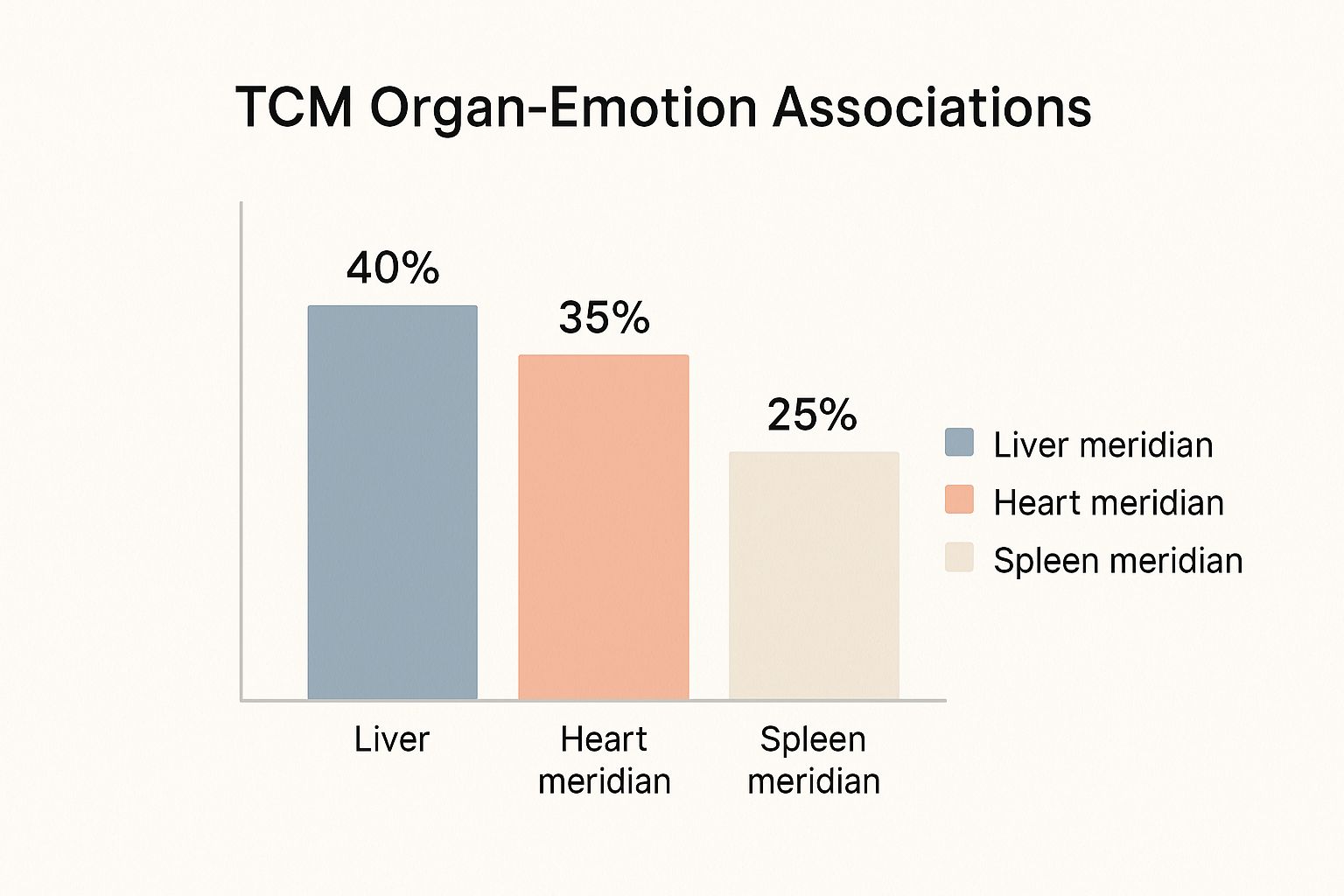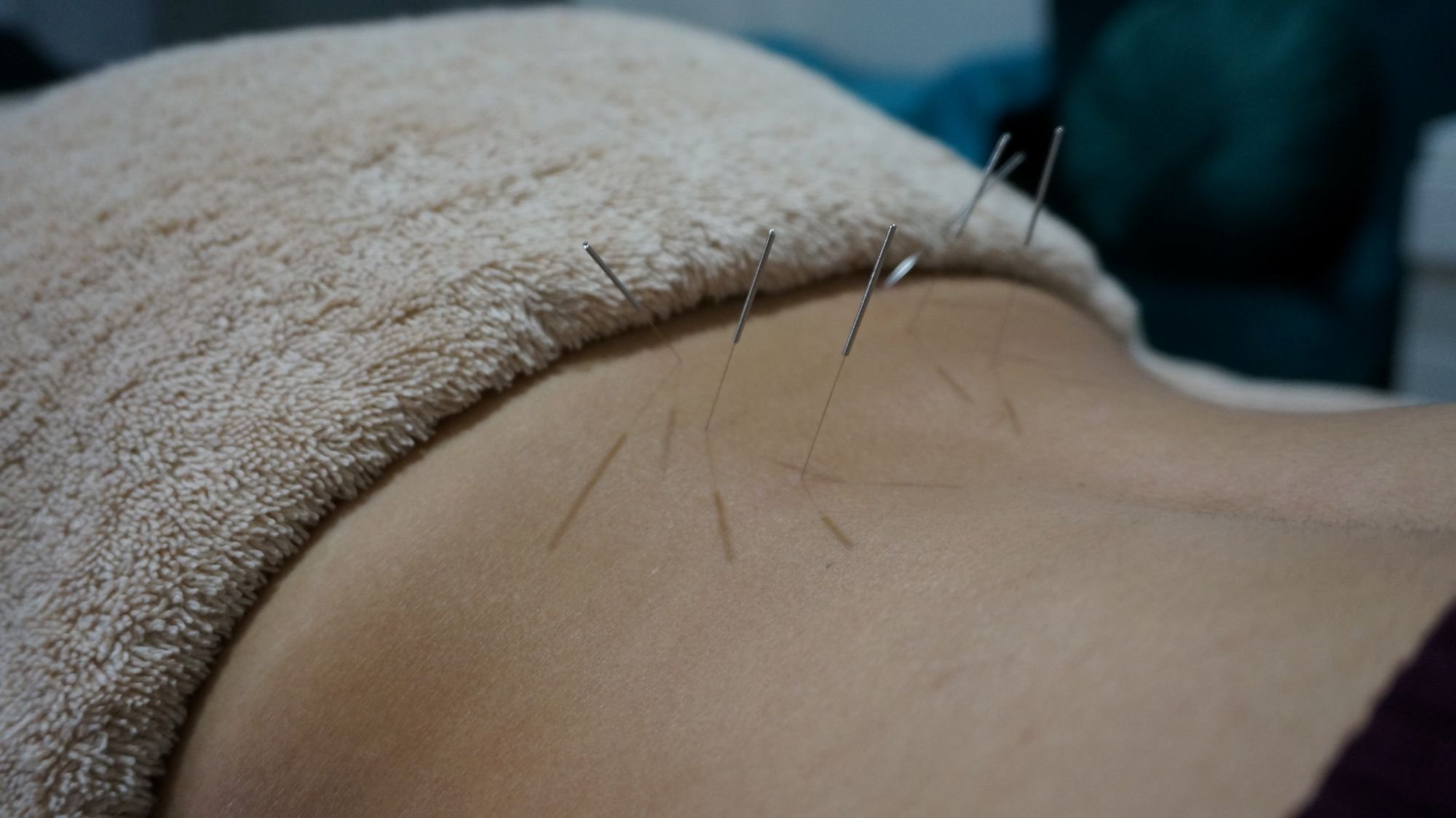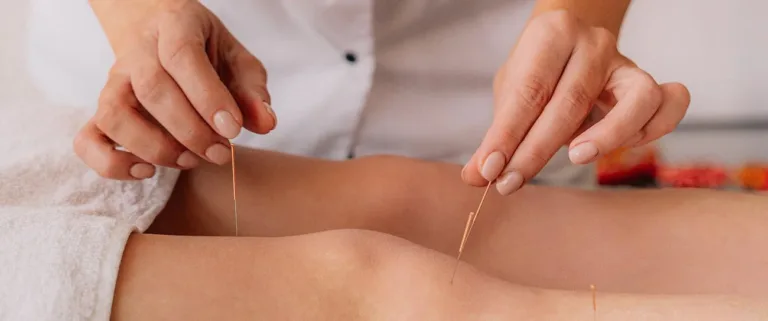Acupuncture is a revered holistic healing practice embraced by countless Australians seeking relief from the debilitating sensations associated with stress and anxiety. This ancient technique involves the precise insertion of ultra-fine, sterile needles into specific points on the body. The primary goal is to activate the body’s inherent healing capabilities, fostering a profound sense of calm and relaxation that many individuals find invaluable in their journey towards holistic wellness.
Unlock the Life-Changing Advantages of Acupuncture for Effective Stress and Anxiety Relief

Stress and anxiety have emerged as prevalent challenges in modern Australian life, impacting a considerable segment of the population. When these overwhelming sensations persist and begin to interfere with daily activities, it becomes entirely justifiable to explore effective strategies aimed at reclaiming control over your mental health and overall wellbeing. For numerous Australians, incorporating acupuncture into their holistic health practices has evolved into a crucial element in their quest for enhanced wellness.
Rooted in the tenets of Traditional Chinese Medicine (TCM), acupuncture is specifically designed to facilitate the smooth flow of energy, referred to as Qi, throughout the body. Recent scientific investigations suggest that stimulating designated acupuncture points may positively affect the nervous system, thus aiding in the regulation of the body’s natural stress responses, commonly known as the ‘fight or flight’ mechanism.
Integrate Acupuncture Into Your Holistic Wellness Strategy for Maximum Benefits
It is advantageous to regard acupuncture as a complementary component within a more extensive wellness strategy. A qualified practitioner often suggests it as an essential part of a comprehensive approach towards your overall health and wellbeing.
This holistic strategy generally involves collaboration with your general practitioner (GP) or a mental health professional, in addition to implementing positive lifestyle changes. Key adjustments may include:
-
Participating in regular physical activity to elevate your mood and energise your body.
-
Prioritising restorative sleep and engaging in relaxation techniques to enhance recovery.
-
Embracing a balanced diet abundant in essential nutrients to support mental health and overall wellbeing.
Acupuncture is frequently integrated into various health strategies, aiming not only to alleviate symptoms but also to fortify your body’s natural systems and boost resilience against stress.
To clarify these fundamental concepts, the subsequent table summarises the essential components of acupuncture’s role in promoting health.
Essential Principles for Understanding the Health Benefits of Acupuncture
|
Concept |
Brief Explanation |
|---|---|
|
Traditional Chinese Medicine (TCM) |
A holistic health framework that views the body as an interconnected entity, wherein physical and emotional wellbeing are intrinsically linked. |
|
Qi (pronounced ‘chee’) |
The vital energy or life force circulating through the body along meridians, crucial for maintaining health and balance. |
|
Acupuncture Points |
Specific sites on the body where Qi can be accessed and manipulated to enhance health and physiological functionality. |
|
Nervous System Regulation |
Modern research illuminates how acupuncture may assist in calming the body’s stress response mechanisms. |
Grasping these foundational principles simplifies the process of creating a personalised treatment plan in practice.
What to Expect During Your Acupuncture Treatment Session
Your first acupuncture visit begins with a thorough discussion. A qualified practitioner will invest time to comprehend your unique health concerns and aspirations before commencing any treatment.
Once you feel comfortable, fine needles will be gently inserted at carefully selected points on your body. Following this, you’ll have the opportunity to unwind in a soothing environment, allowing the effects of the treatment to take hold.
In addition to the acupuncture itself, your practitioner may introduce supplementary therapies. For instance, insights into Chinese herbal medicine can provide a broader perspective on nurturing health from a traditional standpoint. This integrated approach ensures that your care is tailored to your specific needs, supporting you on your path to enhanced wellbeing.
Understanding the Widespread Impact of Stress Across Australia

It is widely recognised that stress and anxiety constitute a significant part of everyday life for numerous Australians. The balancing act of work, family, and personal obligations can accumulate, prompting individuals to seek effective strategies for managing their overall wellbeing. Acknowledging the prevalence of these feelings elucidates why supportive therapies like acupuncture are currently witnessing a surge in popularity.
Statistics reveal a concerning trend. According to the Australian Bureau of Statistics (ABS) report from 2017-18, 25% of Australians indicated experiencing high or very high levels of stress. Importantly, women reported elevated levels (28.5%) compared to men (21.6%), highlighting the urgent need for effective support mechanisms.
Investigating the Connection Between Mental Stress and Physical Symptoms
The sensation of feeling ‘stressed out’ rarely exists solely in the mind. Chronic stress often translates into physical manifestations, which frequently lead individuals to seek assistance.
The Australian Psychological Society (APS) highlights that 72% of Australians experiencing heightened stress levels also display physical symptoms. This statistic serves as a poignant reminder of the intricate intertwining of our mental and physical health. For further insights into the impacts of stress, visit healthinflow.com.au.
Common physical symptoms associated with sustained stress include:
-
Persistent fatigue or a sense of being completely drained of energy.
-
Frequent headaches or migraines that disrupt daily activities.
-
Tightness in muscles, particularly in the neck and shoulders, leading to discomfort and pain.
When these physical symptoms become a continuous aspect of life, it naturally drives individuals to seek effective solutions.
Recognising the connection between emotional states and physical sensations is a significant step in addressing holistic health. This understanding clarifies why a comprehensive approach to wellness, incorporating practices like acupuncture for stress and anxiety, can yield advantageous outcomes.
The escalating need for effective stress management has ignited interest in a variety of supportive therapies. More individuals are exploring practices that complement their existing healthcare routines and address both the psychological and physical dimensions of stress.
Insights from Traditional Chinese Medicine on Achieving Emotional Balance
Examining emotional wellbeing through the lens of Traditional Chinese Medicine (TCM) provides a distinctive perspective compared to conventional Western medical approaches. Rather than solely focusing on brain chemistry, TCM adopts a holistic viewpoint, recognising the body as an interconnected system where emotions and physical health are two intertwined facets of the same reality.
Central to this philosophy is the concept of Qi (pronounced ‘chee’), which signifies the body’s vital energy or life force. This energy is intended to flow harmoniously through designated pathways called meridians. When your Qi flows freely, you generally experience a sense of balance and overall wellness.
However, factors such as prolonged stress, excessive thinking, or sudden traumatic events can disrupt this flow, leading to stagnation. TCM often associates this disruption with feelings we typically link to stress, irritability, or worry.
How Do Your Organs Affect Your Emotional Wellbeing?
Within TCM, specific organ systems are identified as crucial for certain emotions. This perspective extends beyond the physical organs as outlined in anatomy textbooks; it encompasses broader functional networks that impact both physical and emotional health.
When addressing issues related to stress and anxiety, two organ systems often receive special attention:
-
The Liver System: This system is vital for ensuring the seamless flow of Qi throughout the body. When Liver Qi becomes stagnant—often due to frustration or unresolved stress—it can manifest as irritability and tension headaches.
-
The Heart System: In TCM, the Heart is regarded as the home of the mind and spirit, referred to as the ‘Shen’. An imbalance within this system can trigger feelings of anxiety, restlessness, and difficulty sleeping, ultimately leading to poor sleep quality and overall discomfort.
From this traditional viewpoint, addressing emotional imbalance is not about suppressing feelings; rather, it involves identifying where the Qi is obstructed and applying acupuncture to restore its free flow.
Understanding these core principles clarifies why practitioners select specific acupuncture points. They utilise distinct diagnostic methods to identify these patterns within your body. For a deeper understanding of how this diagnostic process functions, refer to our guide on TCM diagnostic methods.
What Does Modern Research Reveal About Acupuncture and Anxiety Management?
While Traditional Chinese Medicine provides a rich, time-honoured framework for emotional health, contemporary science is beginning to catch up. Researchers are investigating how acupuncture may influence the body’s stress responses, offering an additional perspective on its efficacy.
When examining scientific literature, it becomes apparent that the language used is often cautious and measured. Research typically focuses on elucidating how acupuncture operates rather than making absolute claims. The consensus suggests that acupuncture might serve as a valuable component of a comprehensive plan for managing anxiety symptoms, particularly in studies comparing it to placebo or control groups.
Increasing Evidence Supporting the Efficacy of Acupuncture
Recent high-quality reviews are beginning to unveil encouraging trends. The Acupuncture Evidence Project, a comprehensive analysis of scientific literature, identified moderate evidence supporting acupuncture’s effectiveness in treating anxiety, classifying it as having an ‘Evidence of Potential Positive Effect’.
Out of 1,135 clinical studies reviewed on this topic, 13 were deemed high-quality studies, reporting positive outcomes for acupuncture compared to control groups. An Australian-focused review indicated that 11 of these 13 studies demonstrated statistically significant reductions in anxiety symptoms. If you wish to delve deeper into the data, our Evidence Based Acupuncture website offers valuable insights.
The infographic below illustrates which organ-meridian systems are most frequently targeted in clinical practice when addressing stress and emotional imbalances.

As illustrated, the focus predominantly centres on the meridians traditionally associated with processing emotions, managing stress, and achieving mental clarity.
It is critical to remember that scientific understanding is continuously evolving. The existing research is promising, yet it represents only a fraction of an ongoing, broader conversation. For practitioners, this evidence guides us in making informed, balanced decisions when developing supportive care plans for our clients.
What Should You Expect During Your Acupuncture Appointment?

Stepping into your first acupuncture appointment may evoke feelings of uncertainty; however, the process is designed to be calming, professional, and centred on your needs. We adhere to a clear, step-by-step protocol to ensure you feel relaxed and supported from the moment you arrive.
Your initial session begins with a comprehensive discussion with our registered practitioner. This is where we explore your health history, the specifics of your stress and anxiety symptoms, and your desired outcomes. This thorough conversation is pivotal for crafting a personalised treatment plan that aligns with your unique needs and goals.
After our discussion, you will be invited to recline comfortably on a treatment table. The practitioner will then gently insert ultra-fine, sterile, single-use needles into selected acupuncture points on your body.
Understanding the Acupuncture Treatment Process
Once the needles are accurately positioned, your primary role is to relax. Most clients lie quietly in a serene setting for approximately 20 to 30 minutes.
What should you anticipate feeling? Typically, the sensation is mild. Many individuals report experiencing a dull ache or a slight tingling sensation at the needle insertion point, which often fades quickly, leading to a general feeling of relaxation.
The number of needles and their specific placement are determined by the discussions we had during your initial consultation. When applying acupuncture for stress and anxiety, we select points renowned for their ability to soothe the mind and regulate the body’s responses to external pressures.
At JG Alternative Healthcare, our practitioner is registered with the AHPRA, ensuring you receive both professional and safe care throughout your treatment journey.
If you are eager to discover how this process can benefit you, beginning your journey is straightforward. You can schedule your first consultation by checking our Melbourne acupuncture clinic appointments online.
Addressing Common Questions About Acupuncture for Stress Management
It is completely normal to have queries when considering a new approach to your health. Let’s explore some of the most frequently asked questions regarding the use of acupuncture to manage stress and anxiety.
Is Acupuncture Painful?
For the majority of individuals, the answer is no. Acupuncture needles are exceptionally fine—approximately the same thickness as a human hair. They differ significantly from the needles employed for injections or blood tests.
You may feel a brief prick or a gentle ache upon needle insertion, but this sensation typically dissipates within seconds. After the needles are correctly positioned, many clients describe sensations of profound relaxation and tranquillity.
How Many Acupuncture Sessions Are Typically Required?
This question is highly individual, as everyone’s body and circumstances vary. The number of sessions you may require depends on several factors, including the duration of your symptoms and your overall health condition.
During our initial consultation, we will discuss your situation comprehensively. From this conversation, I will recommend a treatment plan tailored to your specific needs, and we will consistently monitor your progress throughout the process.
Can Acupuncture Be Combined with Other Forms of Treatment?
Absolutely. Acupuncture can effectively complement other forms of care. Many individuals find that it enhances the treatments they are currently receiving from their GP, psychologist, or other healthcare professionals.
The key is to maintain open communication. Always inform your health team about all therapies you are engaging in. This ensures that your care remains safe, coordinated, and works synergistically for your benefit.
Is Acupuncture Considered Safe?
When administered by a registered and qualified practitioner, acupuncture is classified as low-risk. In Australia, acupuncturists must be registered with the Australian Health Practitioner Regulation Agency (AHPRA).
This registration guarantees that your practitioner adheres to stringent national standards for safety, hygiene, and professional conduct. It also ensures that only sterile, single-use needles are utilised during treatments.
Why Is Acupuncture Gaining Popularity for Anxiety Management in Australia?
Anxiety has become the most prevalent mental health condition in Australia, affecting approximately 14% of the population each year. With such a substantial number of individuals affected, there is a growing demand for supportive, evidence-based options. Some studies suggest that acupuncture may alleviate anxiety symptoms, often with fewer side effects compared to other standard treatments. For a deeper understanding of the research surrounding acupuncture and anxiety, click here.
The aim of acupuncture is not to replace conventional medical treatments but to act as a supportive partner alongside them. It represents one piece of a larger puzzle in managing your overall wellbeing.
We trust that these answers shed light on how acupuncture may fit into your health strategy.
Are you ready to explore how our registered practitioner can assist you? Connect with JG Alternative Healthcare today.
Melbourne Acupuncture Clinic – Book an Appointment at Moonee Ponds or South Morang at https://jghealthcare.com.au
The Article: Acupuncture for Stress and Anxiety: A Clear Guide first appeared on https://writebuff.com
The Article Acupuncture for Stress and Anxiety: Your Essential Guide Was Found On https://limitsofstrategy.com




